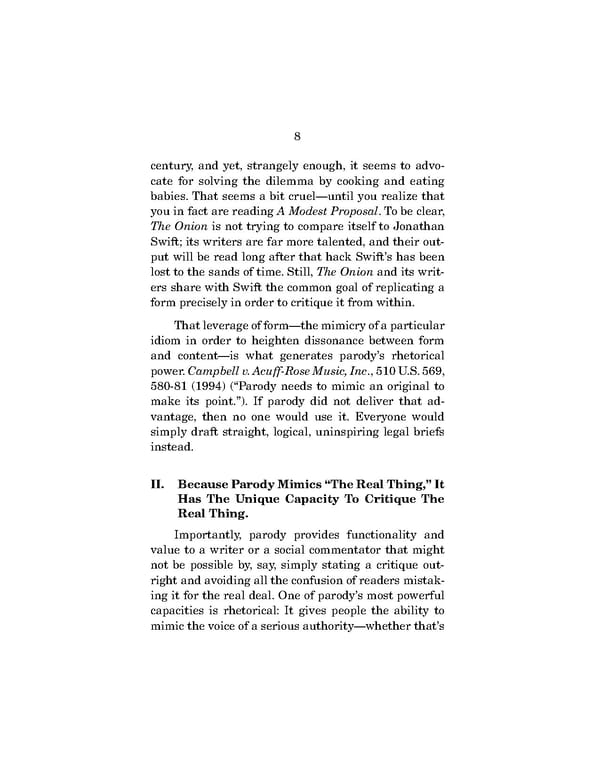8 century, and yet, strangely enough, it seems to advo- cate for solving the dilemma by cooking and eating babies. That seems a bit cruel—until you realize that you in fact are reading A Modest Proposal. To be clear, The Onion is not trying to compare itself to Jonathan Swift; its writers are far more talented, and their out- put will be read long after that hack Swift’s has been lost to the sands of time. Still, The Onion and its writ- ers share with Swift the common goal of replicating a form precisely in order to critique it from within. That leverage of form—the mimicry of a particular idiom in order to heighten dissonance between form and content—is what generates parody’s rhetorical power. Campbell v. Acuff-Rose Music, Inc., 510 U.S. 569, 580-81 (1994) (“Parody needs to mimic an original to make its point.”). If parody did not deliver that ad- vantage, then no one would use it. Everyone would simply draft straight, logical, uninspiring legal briefs instead. II. Because Parody Mimics “The Real Thing,Ž It Has The Unique Capacity To Critique The Real Thing. Importantly, parody provides functionality and value to a writer or a social commentator that might not be possible by, say, simply stating a critique out- right and avoiding all the confusion of readers mistak- ing it for the real deal. One of parody’s most powerful capacities is rhetorical: It gives people the ability to mimic the voice of a serious authority—whether that’s
 Onion - Legal Case for Parody Page 12 Page 14
Onion - Legal Case for Parody Page 12 Page 14